What is This List About?
Fun Fact:
There is a positive correlation between IQ and rationality but it’s not absolute. [1]
This means two things:
- You can have a high IQ and still be pretty irrational and not great at reasoning.
- You can have an average IQ and still be rational or good at reasoning.
Reasoning or logical reasoning are skills that can be improved quickly by learning some common patterns.
What is the best way to do so? One of them is reading books specifically teaching you how to reason better.
I’ve been obsessed with intelligence and rationality for the past five years.
So, after researching thoroughly, I’ve found the best reasoning books money can buy, for all levels (beginner to advanced).
Note:
A dedicated list of the best reasoning books for competitive exams (US and India) is included as well. However, I highly recommend you read to learn before you read for marks.
Before diving deeper, please go through these basics to better understand what you need.
Jump to Content
Some Basics You Must Understand
Here are some important difference between reasoning and logical reasoning, informal logic and formal logic.
Reasoning
- Think of it as this big umbrella term that covers stuff like analyzing, figuring things out, and making conclusions based on info, evidence, or facts.
- It’s basically your brain doing all sorts of things like solving problems, making decisions, and forming judgments.
- Essential to human intelligence, reasoning is our daily tool for understanding, explaining, and navigating the world.
- This term is usually associated with the kind of reasoning we usually do on the fly – informal and intuitive.
- Examples:
- Understanding a piece of text while reading it.
- Weighing the pros and cons of a decision.
Logical Reasoning
- Think of it as the refined art of common sense. It’s the process of using valid and reliable principles of logic to analyze and evaluate statements.
- Focuses on the application of logical rules, consistency, coherence, validity, and the identification of logical fallacies.
- More specific and often used in mathematics, science, and law. It’s also heavily used in philosophy.
- This term is associated with formal, structured approaches based on established principles of logic.
- Example:
- Premise 1: All humans are mortal.
- Premise 2: Socrates is a human.
- Conclusion: Therefore, Socrates is mortal.
Best Reasoning Books for All Levels: Beginner to Advanced
The books included here will help you with both informal and formal reasoning. Typically, the more formal a book is, the more complex it becomes; hence, it is more advanced. The recommended learning curve is to progress from informal to balanced to formal.
Beginner to Intermediate (More Informal):
The list goes from beginner to intermediate, with 1 being the most beginner-friendly.
If you’re just diving into topics like logic & reasoning, these books are perfect for you. For beginners, informal reasoning books are the way to go.
They’re relatable and lay the groundwork (like critical thinking, logical fallacies, biases, decision-making, and argument evaluation) for deeper knowledge if you decide to explore further.
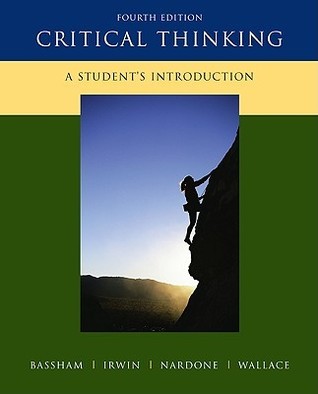
1. “Critical Thinking: A Student’s Introduction” by Gregory Bassham
Best for: Students and beginners looking for a comprehensive introduction to critical thinking.
Pages: 544
This is one of the best reasoning books for beginners. It breaks down critical thinking fundamentals in an accessible and engaging writing style. Bassham uses real-life examples and scenarios that connect with students.
However, it’s a hefty 544 pages, which might seem a bit much for some (including me).
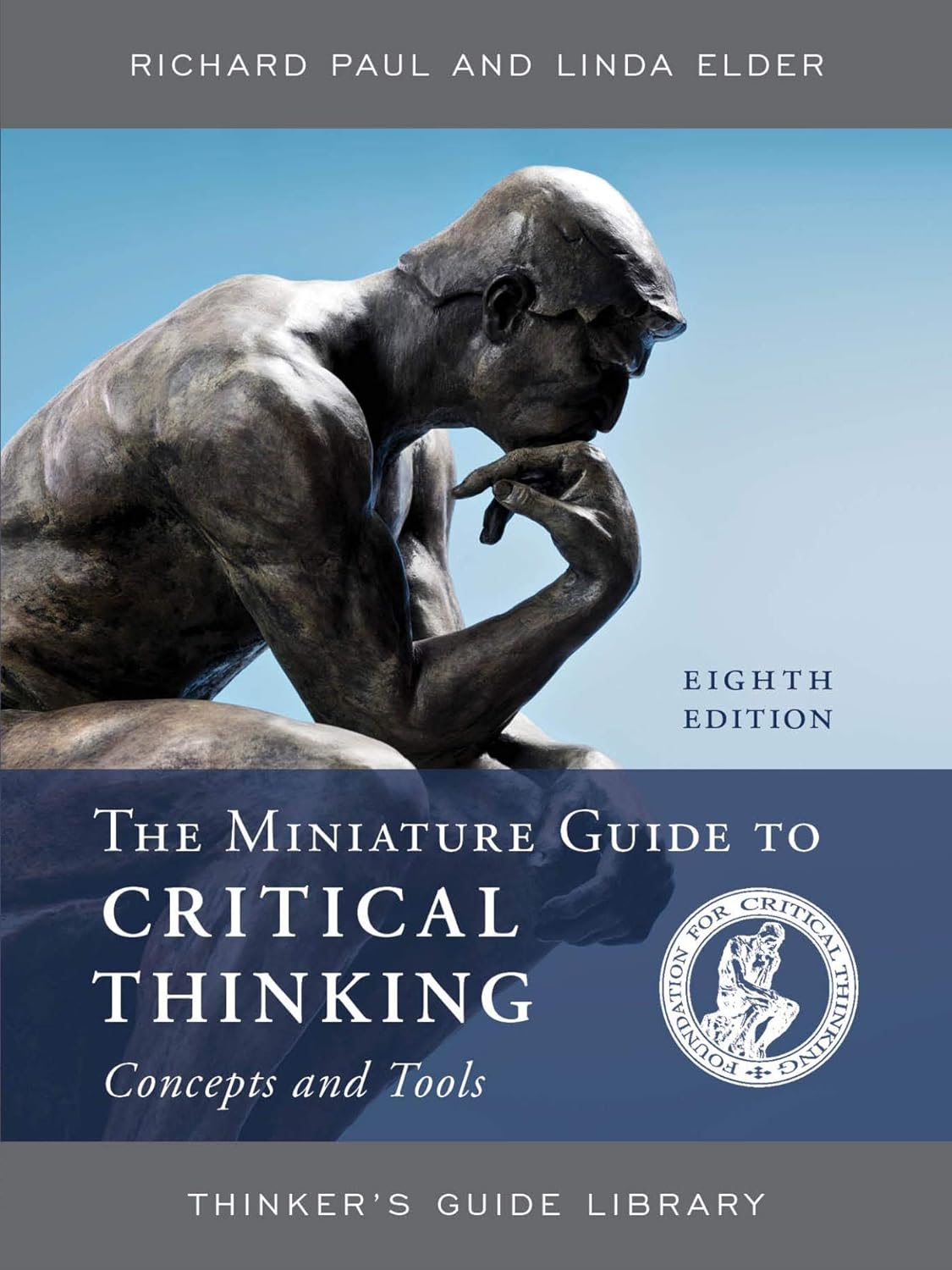
2. “The Miniature Guide to Critical Thinking Concepts and Tools” by Richard Paul and Linda Elder
Best for: Beginners seeking a short guide to critical thinking concepts and tools.
Pages: 48
This 48-page book gives a rapid rundown of essential critical thinking principles. Packed with practical insights and tools, it’s perfect for warming up before tackling a more extensive read.
The writing style is educational (obviously since it’s designed as a toolkit), but it presents information in a way that’s easily digestible for a broad audience.
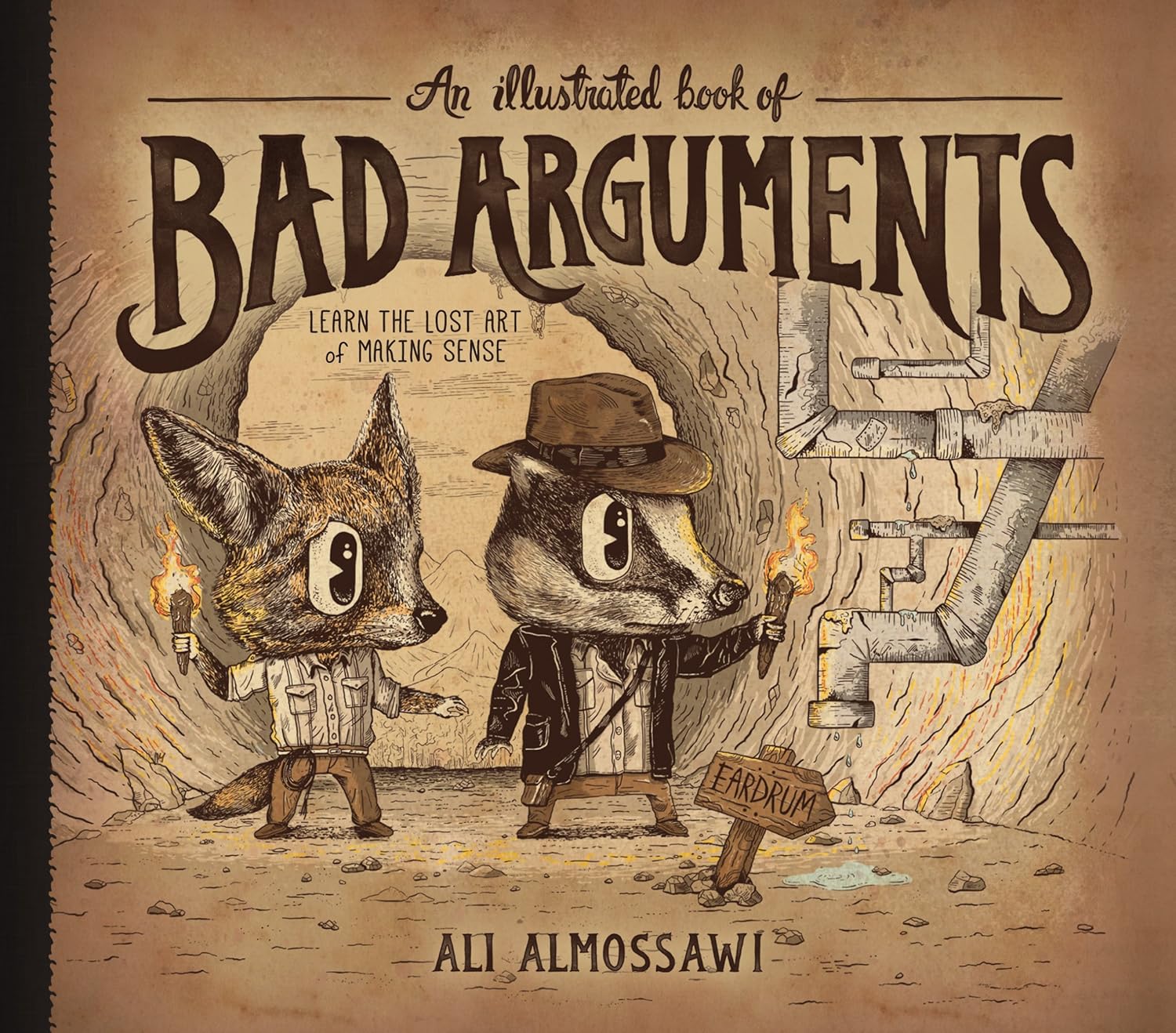
3. “An Illustrated Book of Bad Arguments” by Ali Almossawi
Best for: Beginners who prefer a funny, visually engaging & quick introduction to logical fallacies.
Pages: 55
Another short book with just 55 pages. This reasoning book by Ali Almossawi is not only funny, witty, and easy to read but also highly informative. It’s a great guide to help you easily understand common errors in reasoning and logical fallacies with cute illustrations.
You’ll be able to spot bad arguments and explain why they are flawed to anyone with ease.
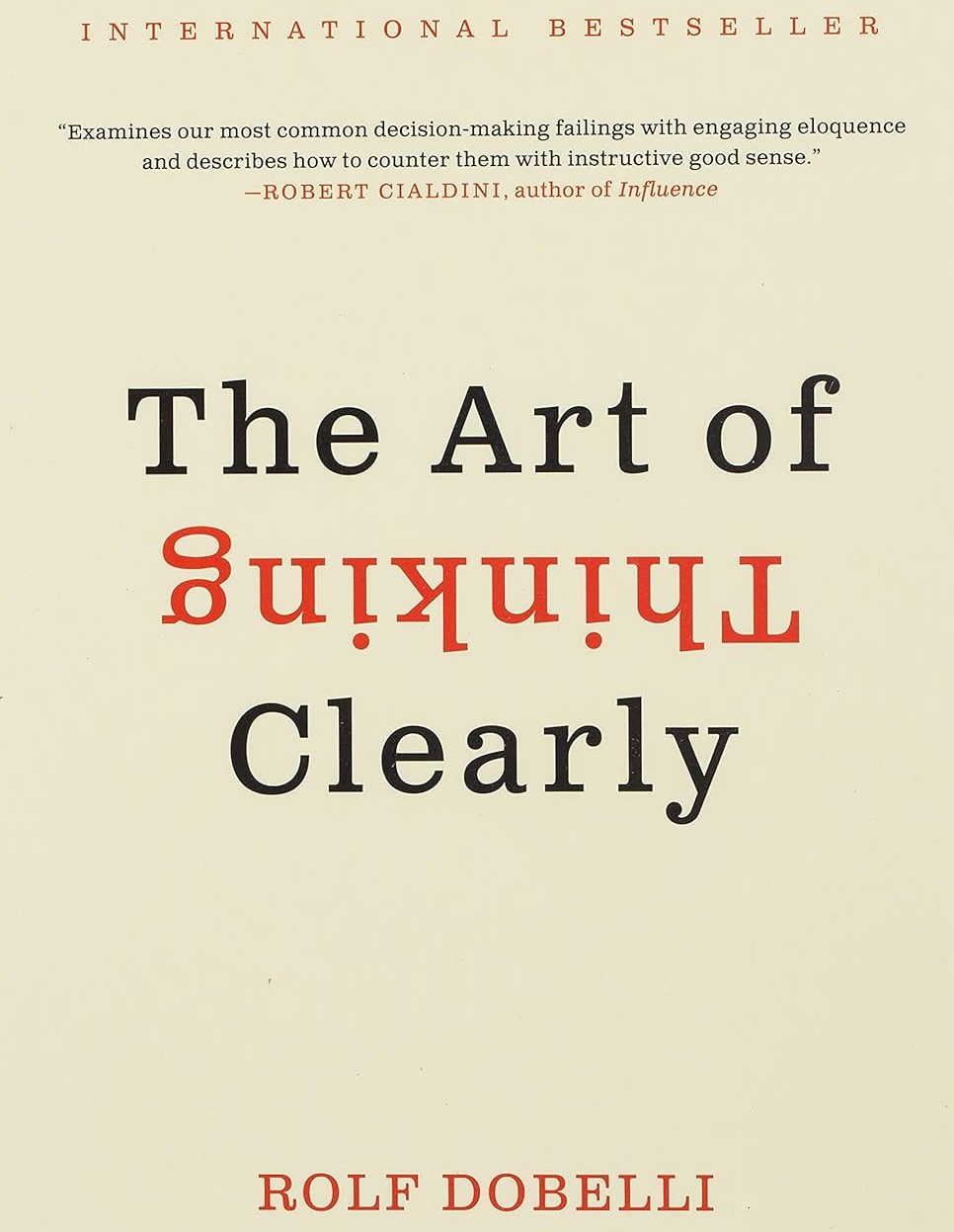
4. “The Art of Thinking Clearly” by Rolf Dobelli
Best for: Beginners wanting a humorous and entertaining deep dive into cognitive biases and critical thinking.
Pages: 384
If you’re not into shorter reads but still crave humor and high entertainment value, then this book by Rolf Dobelli is the one for you.
This 384-page book explores various cognitive biases and errors in thinking engagingly and easily. Rolf Dobelli uses real-life examples to show common thinking pitfalls and provides practical insights to avoid them, improving your reasoning skills one chapter at a time.
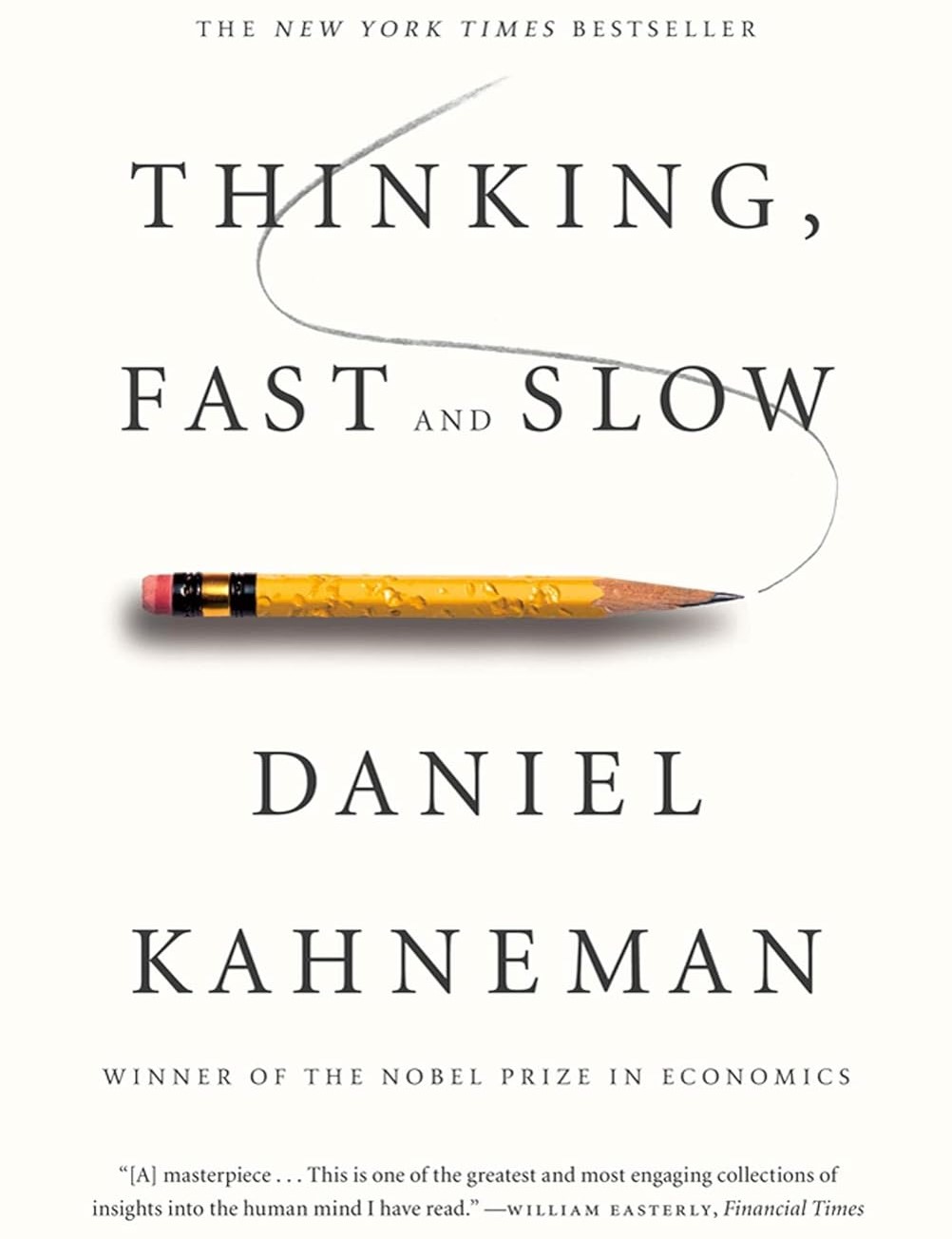
5. “Thinking, Fast and Slow” by Daniel Kahneman
Best for: Beginners/intermediates interested in learning the “whys” and “hows” of human reasoning from a reputed academic.
Pages: 512
Written by Nobel laureate Daniel Kahneman (psychologist and economist), this book gives you a comprehensive overview of reasoning.
It delves into the ways our minds process information and make judgments, explaining how and why people make errors in reasoning with real-world examples.
It’s a fascinating book and the writing style is a mix of fun and educational, making it accessible to a general audience (no wonder it’s available in every corner of the world).
It’s 512 pages long, so take your time with this one.
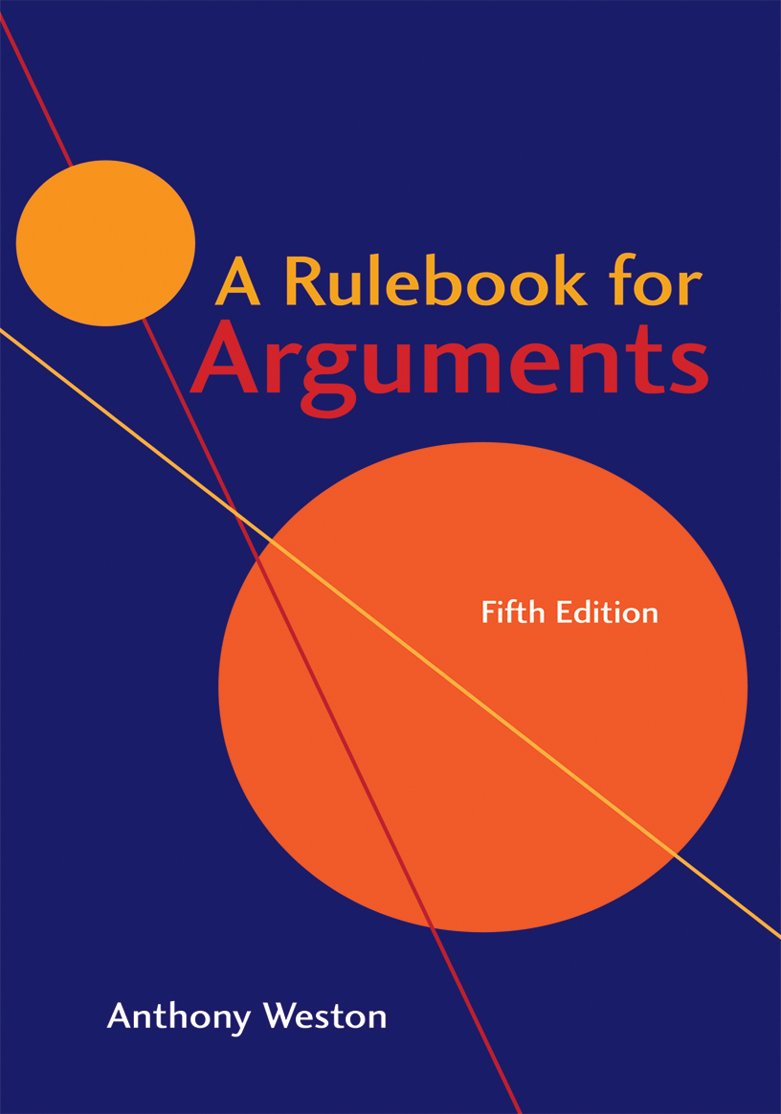
6. “A Rulebook for Arguments” by Anthony Weston
Best for: Beginners who want a practical handbook for constructing and evaluating arguments.
Pages: 104
This book is designed as a handbook for students to engage in critical thinking and effective argumentation. It covers fundamental concepts such as defining terms, constructing propositions, identifying common fallacies, and presenting arguments persuasively.
The book is known for its straightforward and user-friendly approach, making it suitable for students, debaters, and anyone interested in honing their logical reasoning skills.
It’s 104 pages in length (because it’s a handbook).
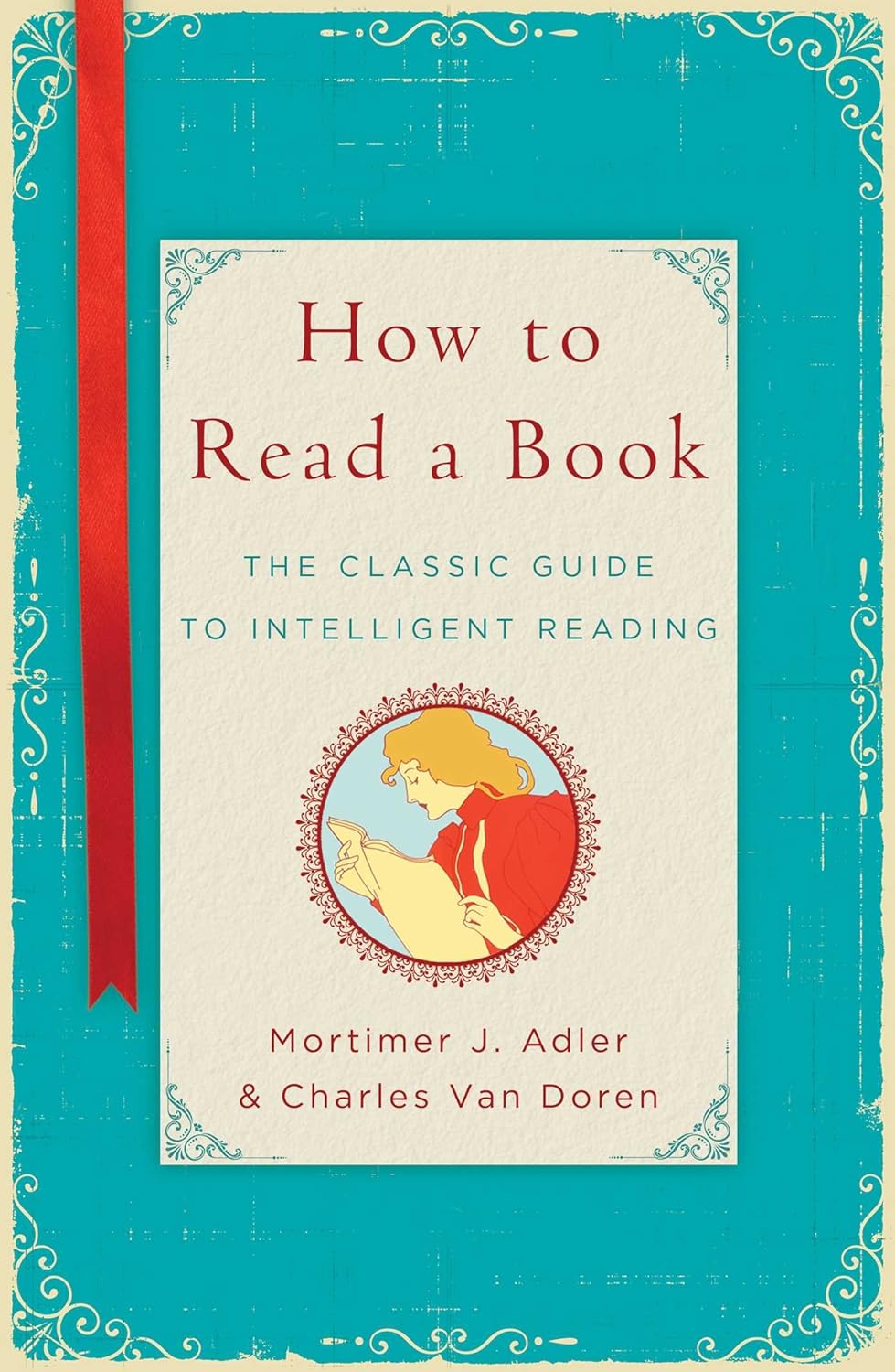
7. “How to Read a Book” by Mortimer J. Adler and Charles Van Doren
Best for: Readers seeking general guidance on effective reading, including logic-related texts.
Pages: 426
This 1972 classic will boost your reading-related reasoning skills. It guides you through reading for better understanding, tackling everything from basic reading to diving into analytical and syntopical reading (when you read multiple books on the same subject).
The writing tone is all about instruction and education, but they keep it engaging by throwing in a conversational vibe with loads of examples.
It’s 426 pages in length.
Intermediate to Advanced (Balanced):
Once you’ve got the hang of thinking critically, spotting logical fallacies, and navigating those cognitive biases, it’s like you’ve graduated from Reasoning 101. Now, we’re kicking it up a notch.
The books now will get more formal step by step. However, most of them still balance informal and formal logic, so you have many options to choose from.
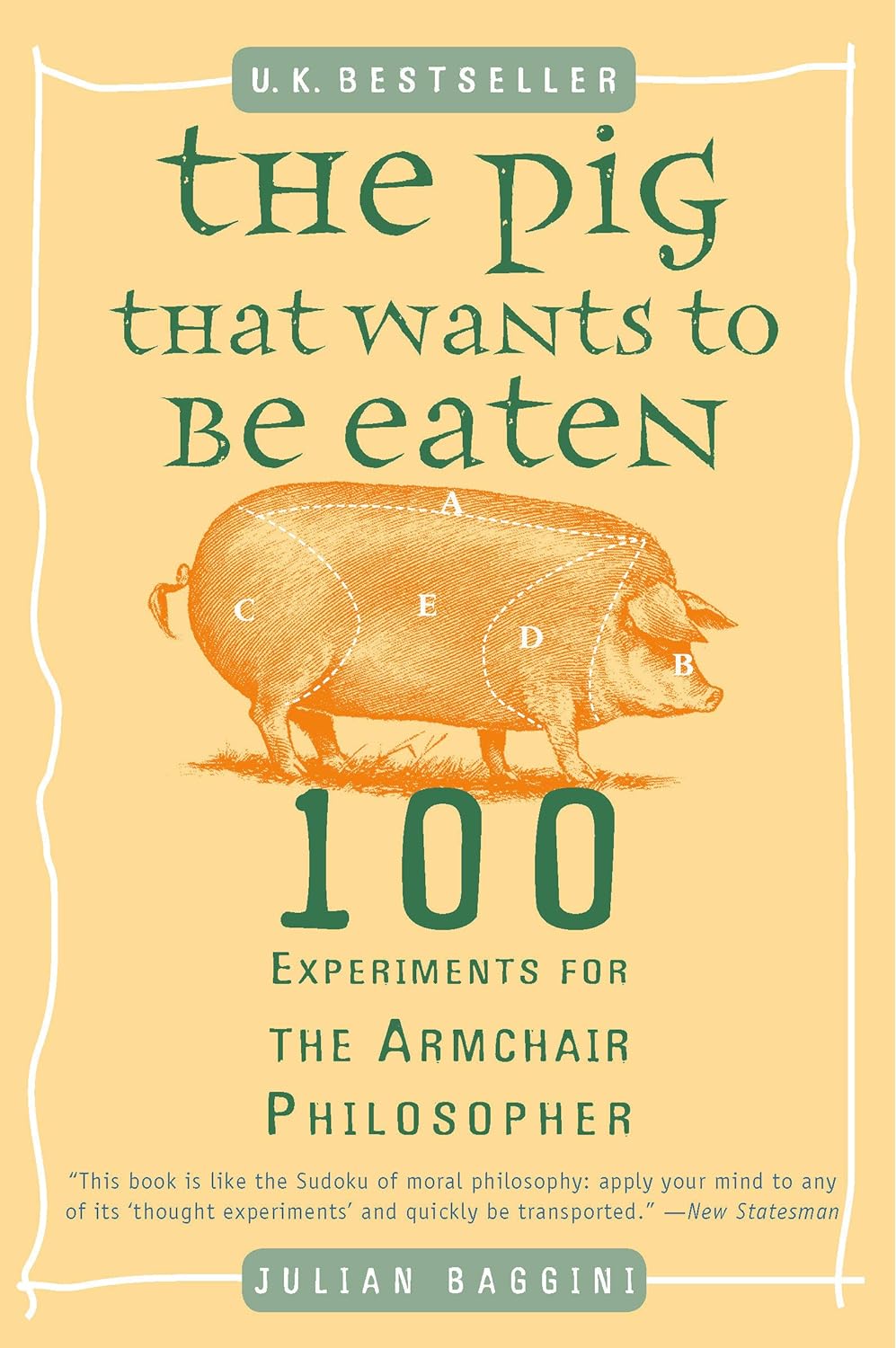
8. “The Pig That Wants to Be Eaten: 100 Experiments for the …” by Julian Baggini
Best for: People wanting to learn reasoning through philosophical thought experiments and step into formal logic (a bit).
Pages: 320
It’s a thought-provoking and engaging book that presents a series of philosophical thought experiments and dilemmas.
It’ll challenge your reasoning skills by making you think about moral, ethical, and metaphysical questions. The writing is engaging and clever. Baggini makes complex topics easy for a general audience.
It leans more toward informal logic but it also explores formal logic through its presentation of philosophical thought experiments and dilemmas. It’s quite a fun way to level up your reasoning and analytical skills.
It’s 320 pages in length, which is perfect for a book (according to my taste).
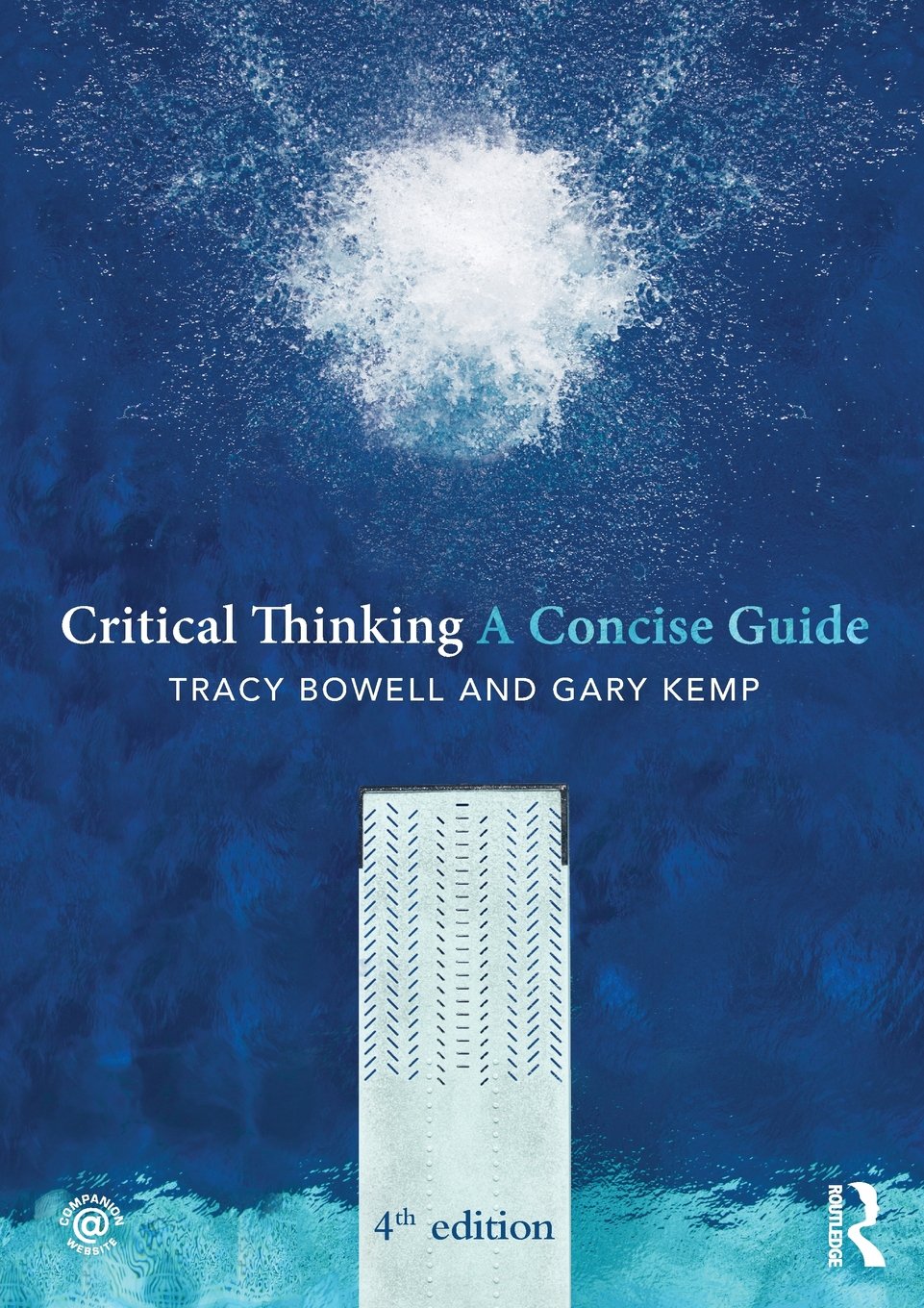
9. “Critical Thinking: A Concise Guide” by Tracy Bowell and Gary Kemp
Best for: Readers wanting to improve their reasoning with interactive exercises while getting a taste of formal logic too.
Pages: 304
This reasoning textbook puts a spotlight on applying informal logic while giving you a taste of formal logic too. It’s a textbook, so the writing is clear and straightforward, making it easy to grasp.
With 304 pages, it comes with interactive exercises to help you apply critical thinking and reasoning skills in real-life scenarios.
It’s a top choice for those moving from beginner to intermediate, seamlessly introducing you to formal logic along the journey.
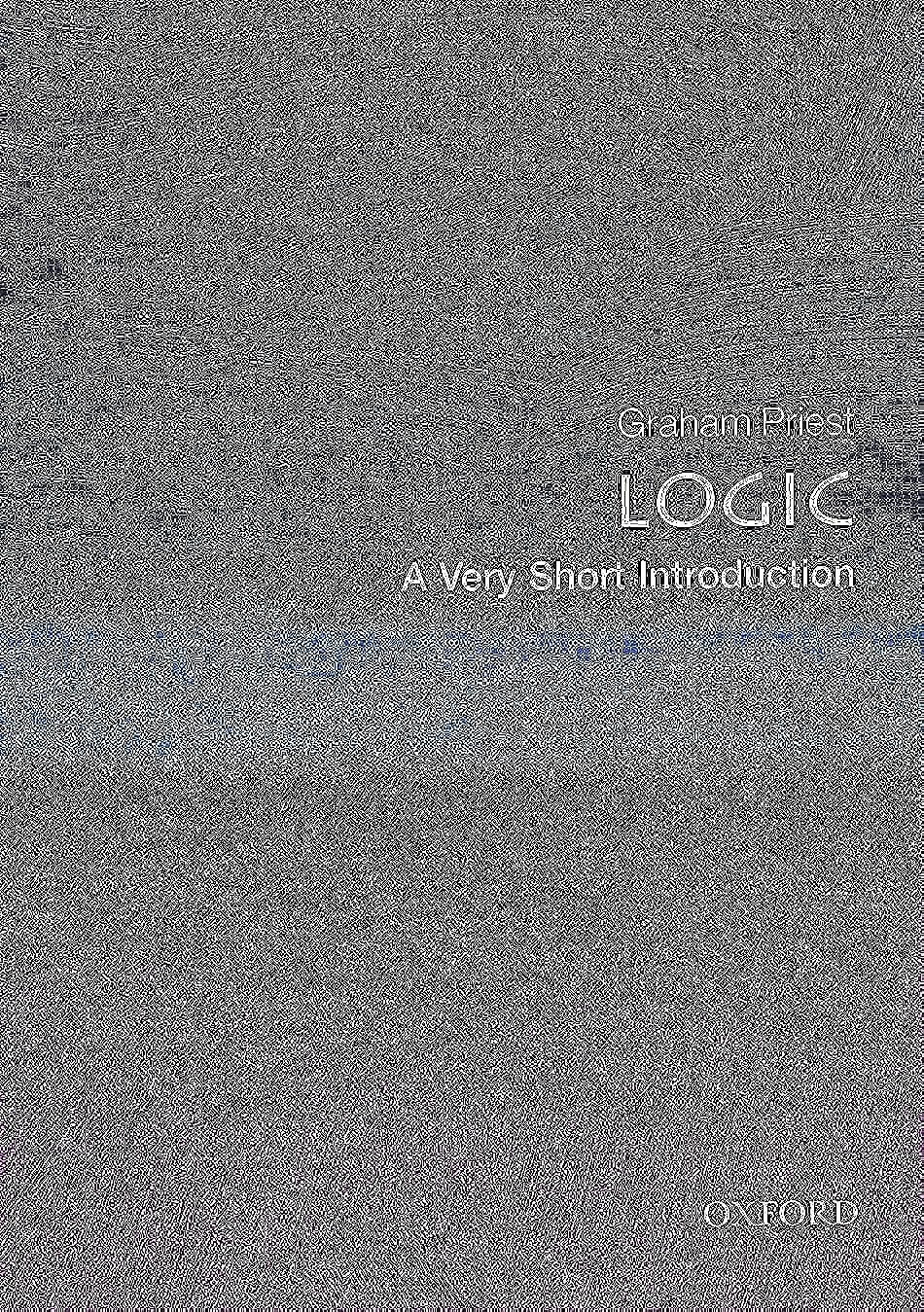
10. “Logic: A Very Short Introduction” by Graham Priest
Best for: Readers looking for a short entry point into formal logic without extensive details.
Pages: 184
This book takes it up a notch, striking a balance between informal and formal logic, putting a bit more weight on the formal side—the first one in this list to do so.
Perfect for readers seeking a quick intro (184 pages) without getting bogged down in intricate details, especially beginners. It throws in some thought-provoking nuggets about logic, and the writing style keeps it simple, making it an excellent entry point for anyone wanting to dip their toes into logic before tackling more advanced texts.
Covering classical and non-classical logic, paradoxes, and the philosophy of logic, it gives you a well-rounded perspective on the subject.
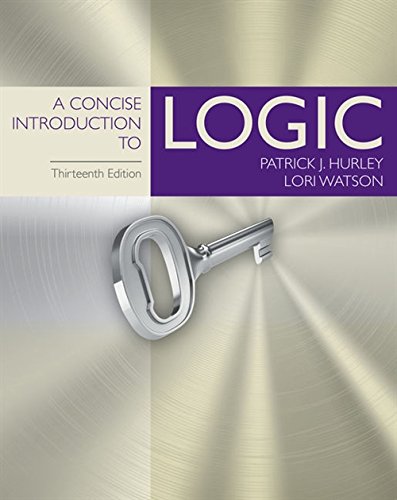
11. “A Concise Introduction to Logic” by Patrick J. Hurley
Best for: Readers looking for an extensive intro to logic (more formal than informal) with many exercises to solve.
Pages: 736
This textbook is a go-to for intro logic courses, tackling both formal and informal logic, with a bit more focus on the formal side.
The writing is clear and user-friendly, making it a breeze for students and newbies to grasp. Packed with exercises and problems, it’s hands-on learning.
Now, the catch: it’s a hefty 736 pages. But here’s the trick—you can breeze through a chunk of it since a good portion is filled with exercises, many of which you can skip.
Advanced (More Formal):
Venturing into the more formal logic side of reasoning, these books are a mental workout, delving deep into the intricacies of logic, language, meaning, and beyond. As usual, the list progresses from the less complex to the more complex.
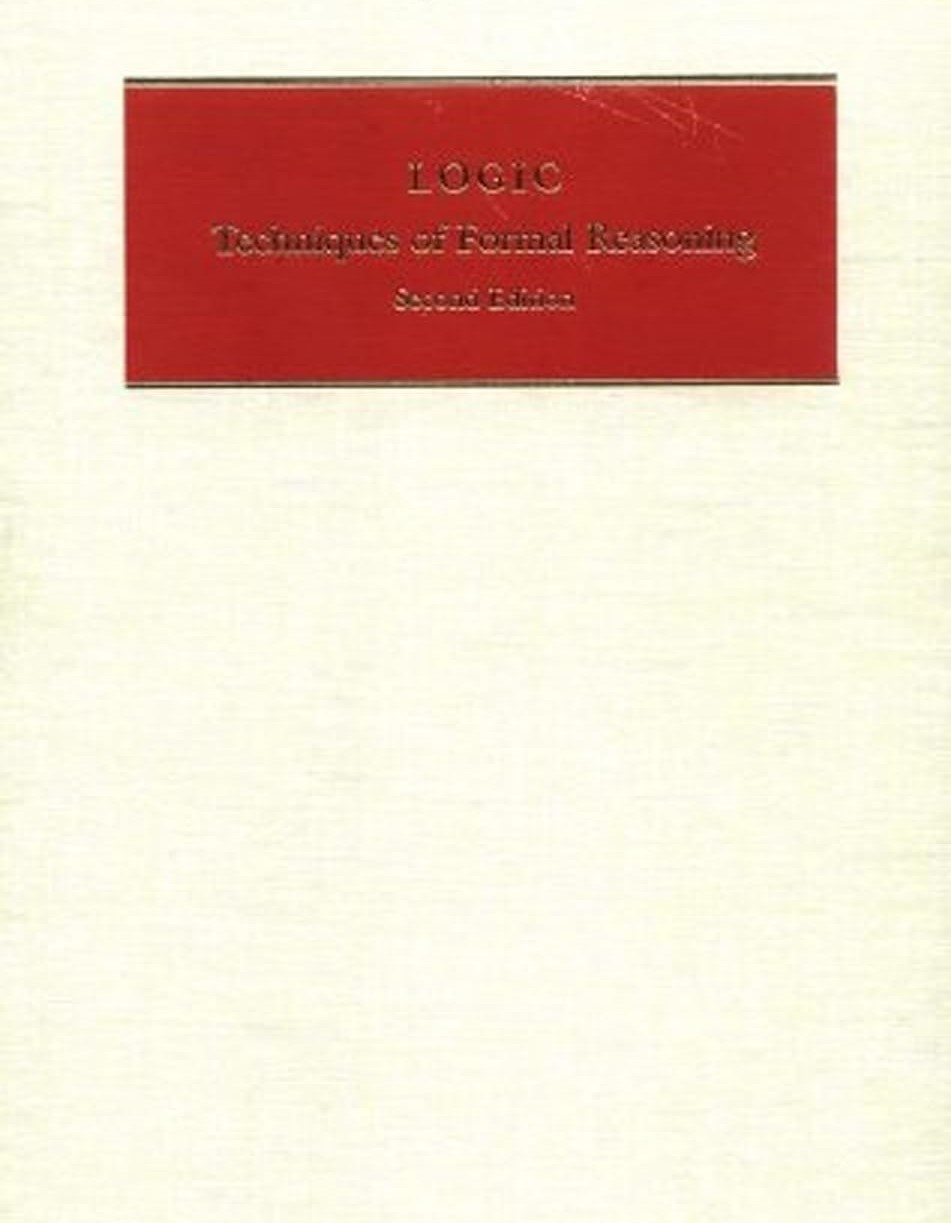
12. Logic: Techniques of Formal Reasoning by Kalish, Donald
Best for: Enthusiasts seeking a thorough understanding of formal reasoning techniques.
Pages: 520
This logical reasoning textbook takes a deep dive into advanced formal logic, tackling topics like predicate logic and modal logic. The writing is informative, fitting for the advanced level, and follows a systematic approach with detailed explanations for each step.
As you’d expect from a textbook, it comes with pedagogical features like exercises and problems for practice, offering a range of difficulty levels to choose from.
Clocking in at 520 pages, it’s a comprehensive guide to these advanced topics.
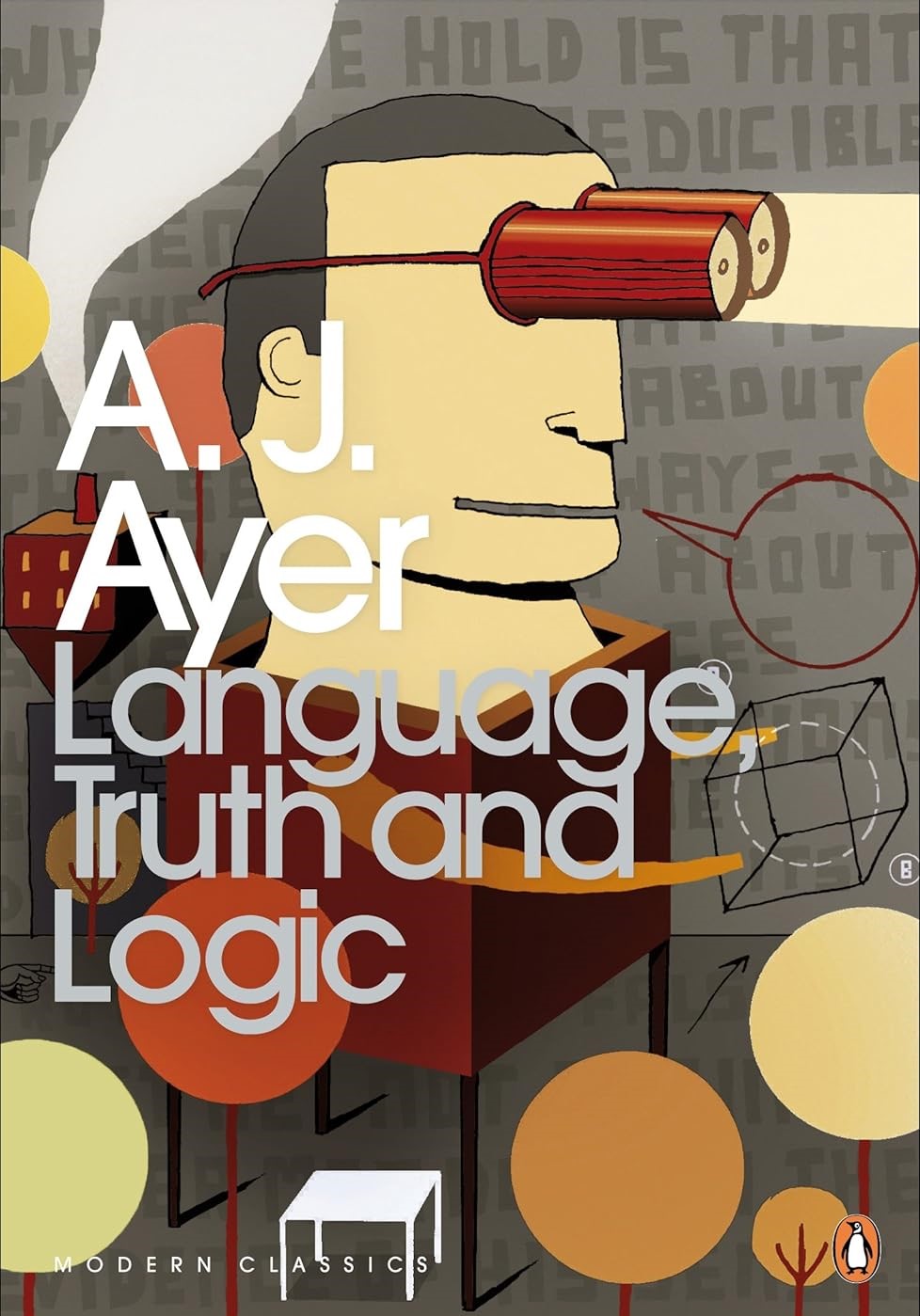
13. “Language, Truth, and Logic” by A.J. Ayer
Best for: Logic enthusiasts interested in the intricate connection between language and logic.
Pages: 224
For a profound exploration of the intricate connection between language and logic, delve into A.J. Ayer’s compelling defense of logical positivism in this influential book.
A must-read for logic-enthusiasts, this book has left an indelible mark on 20th-century philosophical thought.
Though concise at 224 pages, it requires a solid grasp of formal logic basics. Keep in mind that understanding the criticisms leveled against Ayer’s argument comes with delving into its depths.
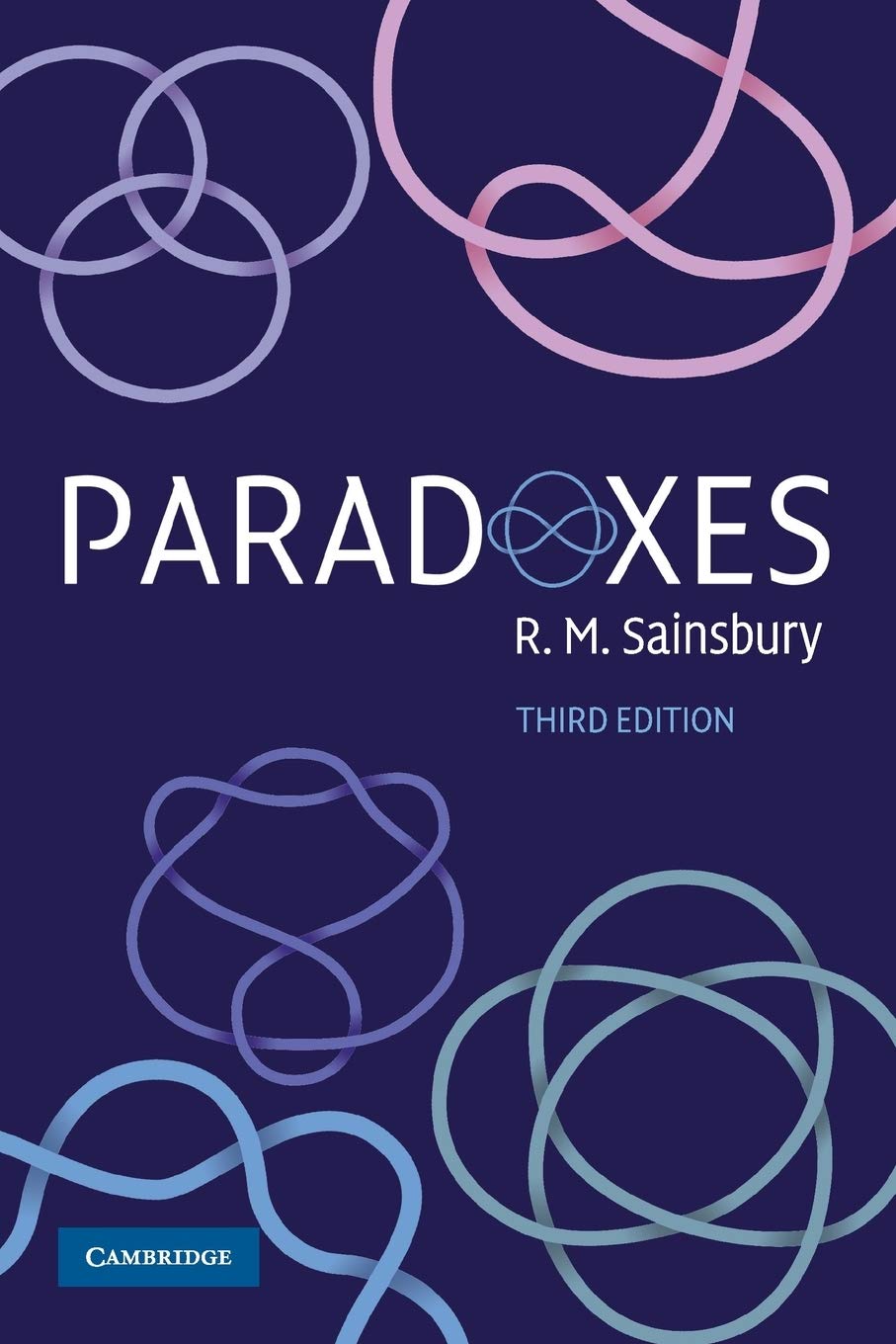
14. “Paradoxes” by R. M. Sainsbury
Best for: Advanced readers interested in exploring paradoxes and their implications.
Pages: 192
The realm of paradoxes is a captivating and intellectually stimulating facet of logic. R. M. Sainsbury’s book guides you on a journey through these paradoxes, pushing the boundaries of traditional notions in logical reasoning.
Elevating your logical reasoning skills, this exploration holds implications across diverse disciplines such as mathematics and computer science.

15. “Tractatus Logico-Philosophicus” by Ludwig Wittgenstein
Best for: Advanced students and scholars in philosophy and formal logic who wish to delve into the work of one of the most significant thinkers.
Pages: 192
This is the deep end of the pool. Wittgenstein’s Tractatus is famous for shaking up our understanding of language, meaning, and reality’s very nature. It takes a unique spin with logical atomism, suggesting that meaningful ideas break down into simple atomic propositions.
The focus is on the link between language and the world, highlighting how language’s structure mirrors reality’s structure.
Wittgenstein later switched gears in his work “Philosophical Investigations,” offering different perspectives.
Best Reasoning Books for Competitive Exams
For competitive exam prep, this list provides specially crafted study material, offering a mix of theory, examples, and exercises to boost reasoning skills—a key success factor in various exams.
Before diving into these, I highly recommend you read to learn before you read for marks. The section is divided into India and the USA, because of differences in standardized tests, academic needs, and professional exams.
Best Reasoning Books for Competitive Exams in India 🇮🇳
Beginner to Intermediate:
- “A Modern Approach to Verbal & Non-Verbal Reasoning” by R.S. Aggarwal (Check Price)
- Best for: Beginners preparing for competitive exams requiring reasoning skills.
- “How to Crack Test of Reasoning” by Arihant Experts (Check Price)
- Best for: Beginners aiming to build a strong foundation in reasoning for competitive exams.
- “A New Approach to Reasoning Verbal & Non-Verbal” by B.S. Sijwali and Indu Sijwali (Check Price)
- Best for: Those looking for a structured approach to both verbal and non-verbal reasoning.
Intermediate to Advanced:
- “Analytical Reasoning” by MK Pandey (Check Price)
- Best for: Intermediate-level learners aiming to enhance analytical reasoning skills for competitive exams.
- “Logical Reasoning and Data Interpretation for the CAT” by Nishit K. Sinha (Check Price)
- Best for: Intermediate to advanced learners preparing specifically for CAT (Common Admission Test).
- “A Modern Approach to Logical Reasoning” by R.S. Aggarwal (Check Price)
- Best for: Intermediate learners seeking a deeper dive into logical reasoning concepts.
- “Magical Book On Quicker Maths” by M. Tyra (Check Price)
- Best for: Those who want to strengthen their quantitative and reasoning skills simultaneously.
Advanced:
- “How to Prepare for Logical Reasoning for the CAT” by Arun Sharma (Check Price)
- Best for: Advanced CAT aspirants looking for an in-depth logical reasoning preparation guide.
Best Reasoning Books for Competitive Exams in the USA 🇺🇸
Beginner to Intermediate:
- “The Official SAT Study Guide” by The College Board (Check Price)
- Best for: High school students preparing for the SAT, a common college admission test.
- “The Official ACT Prep Guide” by ACT, Inc. (Check Price)
- Best for: High school students preparing for the ACT, another widely used college admission test.
- “Cracking the GRE” by The Princeton Review (Check Price)
- Best for: College graduates preparing for the GRE, commonly required for graduate school admissions.
- “GRE Prep 2022” by Kaplan Test Prep (Check Price)
- Best for: Graduates aiming to excel in the GRE, covering both verbal and quantitative reasoning.
- “GMAT Official Guide 2022” by GMAC (Check Price)
- Best for: Business school applicants preparing for the GMAT.
Intermediate to Advanced:
- “LSAT Trainer” by Mike Kim (Check Price)
- Best for: Law school applicants preparing for the LSAT, focusing on logical reasoning.
- “MCAT Complete 7-Book Subject Review” by Kaplan Test Prep (Check Price)
- Best for: Pre-med students preparing for the MCAT, which includes a critical analysis and reasoning skills section.
- “DAT Destroyer” by Dr. Jim Romano (Check Price)
- Best for: Dental school applicants preparing for the DAT (Dental Admission Test).
Advanced:
- “LSAT Logical Reasoning Bible” by David M. Killoran (Check Price)
- Best for: Advanced LSAT test takers looking for an in-depth guide to logical reasoning.
- “Manhattan Prep GRE Set of 8 Strategy Guides” by Manhattan Prep (Check Price)
- Best for: Advanced GRE test takers seeking comprehensive strategies and practice.
Conclusion
For more self-improvement tactics and tools, subscribe to TACTICS+ below. This is my note-taking space, where I document all the best information I learn or find. Don’t miss out!”
Browse other study related tools from the world’s best minds here.




Only a smiling visitant here to share the love (:, btw outstanding design.
Love your Work! So crisp and visually appealing with right insights!
This would be now to go place for anything/everything insightful!
Keep Shining and Inspiring!
Great Job!